How to Become a Falconer The NLFA strongly encourages all aspiring falconers and austringers (those who fly Accipiter hawks) to do their research first! Falconry is a huge commitment and will impact your social life and finances - guaranteed! The wise aspiring falconer may therefore wish to consult with their significant other and children (if you have them) to discuss your plans. You may want to get your family involved in this marvelous sport so at least you get to spend time with them and no one gets upset when you start digging up that prized rose garden to make way for a weathering, or you find yourself unable to take that yearly vacation! If you made it past the previous paragraph without incident and you have the blessing of your family the next question will be - where do I start? A logical plan would be to read as many books and internet forum threads on falconry as you can, but beware! There can never be any substitute for good hands-on experience with an experienced falconer and even a large collection of memorized books will fall short of preparing you for the challenges involved. Reading about birds of prey and their training and care in the comfort of your favourite reading chair will not prepare you for the harsh realities of trudging through woods and fields in the rain, cold and snow. Please see our resources section below for some suggested reading. Falconer have to educate themselves in various area including: Raptor: Biology, Ecology, Behaviour, Parasitology, Pathology Basic Emergency Veterinary Medicine Food Sources Nutrition and Care Aviaries and Shelters Trauma Prevention Training Techniques Prey/Quarry Biology, Ecology, Behaviour, Parasitology and Diseases Regulations We do not wish to completely discourage you from becoming a falconer by inundating you with a list of initial tasks, but at the same time we are trying to portray an accurate picture of the time, energy, and money involved in educating someone to a level whereby most falconers would say that they are ready to maintain and train a raptor for the first time. Generally this takes hundreds of hours over several months....and then once an individual obtains a raptor - the training continues for the rest of ones life. Some quotes to keep in mind when considering falconry: "Do or do not....there is no try." or "Falconry you do yes....or falconry you do no....falconry you do "maybe"....and squish - like the grape". Falconers have fought long and hard to maintain the right to pursue this ancient heritage and strive to maintain it in its highest forms. Newcomers or would be apprentices have to convince a falconer that this is more than a passing fancy before expecting any form of support or help. Even after showing the dedication of going part way down the training path on one's own, and getting some hands-on training and experience with falconry, falconers are slow to take on apprentices. Like some other pursuits such as flying planes, hang gliding, or performing surgery, despite a burning desire; unfortunately not all people can be falconers. For those that find themselves heavily enamoured with falconry but are unsure if they could be successful with this sport, we suggest you do some more reading and research. Often people find themselves in this stage for months, years, and in some cases decades. Training Most regions globally require a minimum of a 30 hour intensive hands-on training course. Currently, the nearest formal, professional, courses are offered in Quebec and Ontario. Our association has full access to many of these educators and we could have the courses delivered right here in Newfoundland and Labrador. Typically, course fees range from $250 to $600 per person plus any travel, accommodations, and meals involved. Not all regions require a formal and legal 1 or 2 year mentorship plan guided and implemented by an experienced falconer. However, to attempt falconry as an isolated individual without any expert advice and using only books is a long, harsh, and un-necessary path. Time A falconer must have sufficient time and patience to devote to training and flying a bird. A trained raptor requires an absolute minimum of one hour per day, 365 days a year. Training a young bird and flying it requires substantially more time. Balancing falconry, family, business and/or a job requires detailed planning and a sacrifice of time and energy that most people, and the people in their lives, simply can not sensibly give. Finances A falconer must have the funds to obtain and maintain both the sport and the husbandry of the raptors in their care. Typically this will require purchasing or making a long list of facilities and equipment such as: Basic training and books. $300-$1000 Gauntlets (falconers should have two of every piece of essential equipment at all times). 2X$70 Hoods. 2X$50 Suitable leather, suitable leather protectant, and leather working tools. $75-$140 Coping files and clippers. $30 Grommets and pliers, bells, and swivels. $75 Feathers for imping (free - once you find them) Suitable scales with perch. $100 Deep freeze and suitable food supply (meat should not be stored more than three months due to nutrient deterioration). $200+ for a freezer plus up to $4 a day for food. Emergency first aid kits specifically designed for raptors. $30 Nutrient supplements, suitable lice/tick/flea spray. $100 annually Suitable block or bow perches. $100-$500 Lures, creances, leashes, and lines. $30 Telemetry receiver and two or more transmitters. $1500+ Suitable hunting gear and a suitable vehicle(s)? Mews. $500-$1000 Weathering. $500-$1000 Membership to various falconry groups. $100+ Money reserved for an emergency vet bill? Raptor? A successful life involving falconry - priceless Facilities A falconer must be able to provide suitable facilities for keeping a bird in fair weather and foul. Captive raptors must be protected at all times from cats, dogs, and other predators such as mink, including humans; as well as extremes of heat and cold, wind, fungus, disease, parasites, and dampness. Expert advice should be sought before attempting to build a Mews (i.e. a hawk house), and a Weather Area (a properly fenced and screened area using adequate welded mesh and netting to prevent biting insects). Expert Human Help Ideally, a would be falconer should have a proper and highly available falconry mentor or at the very least availability to a person or people that have considerable experience in the husbandry and training of the specific species of raptor they are hoping to have. To attempt falconry without this is a long, foolish, unnecessary, and harsh path. One of the reasons falconry is so successful and practiced to such a high level in North America is because would be falconers have done an extreme amount of preparation and have access to expert help and advice at all times. Access to Suitable Land A falconer must have adequate and reasonably convenient areas for both training and flying a raptor. The raptors falconers fly are chosen based on the habitat available. While we are blessed with virtually limitless public land, there are many consideration that must be taken into account when examining potential flying ground. Are there wire fences that a raptor can fly into and get hurt on? Are there transformers or exposed power lines? Are there other hunters nearby? Is there possibly quarry with lead shot in them that can be lethal if ingested by a raptor? Are there non-falconry raptors in the area? Like most things in falconry, even choosing a hunting or flying area is not as simple as it at first may appear. Often safety precautions must be made. Hunting License While not the only reason raptors are trained and flown, traditional falconry is the human hunting of wild quarry with the aid of a trained raptor. Hunting is the difference between being a traditional falconer and being a "pet-keeper" whereby the raptor is not flown on prey retained by the falconer. Raptors do not make good pets! Traditional falconry requires the hunting of game with the aid of a raptor as defined in the Migratory Bird Act of Canada. The raptor is used as a tool by a human (like a gun) to obtain and possess the prey hunted by a raptor. The falconer is no longer an observer in this pursuit, but an active participant and is securing game from the raptor. Currently, hunting with the aide of a raptor is regulated and allowed under federal law, but our province is 1 of 2 provinces that has not yet updated its legislation concerning hunting game species with the aide of a raptor (sadly, until recently there were no falconers residing in our province). One can only assume that this lack of regulation is simply a result of a lack of priority and resources by legislators, as falconry is a legitimate means of hunting and regulated in virtually every other province and state in Canada and the USA. The NLFA is dedicated to introducing adequate rights and freedoms to our legislation such that it reflects those enjoyed in every province in Canada with falconers (now 9 of the 10 provinces). As in the development of any pursuit, where one ends up, is often a reflection of where one starts from. The aim and mandate of the NLFA is to foster the ethical development of falconry such that it is practiced in the highest of standards in our province. |  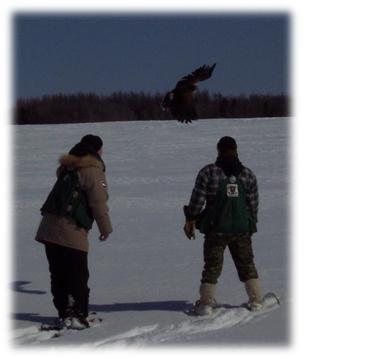 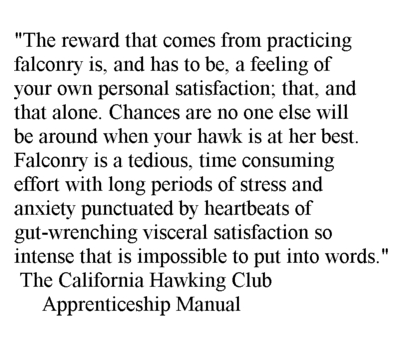 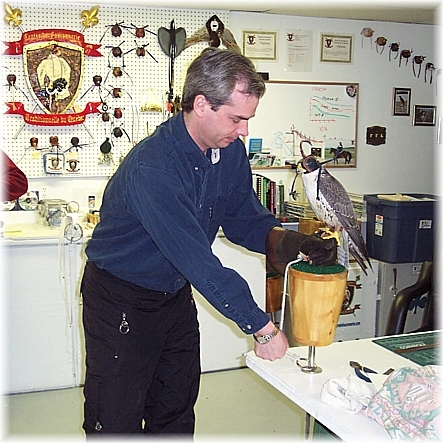 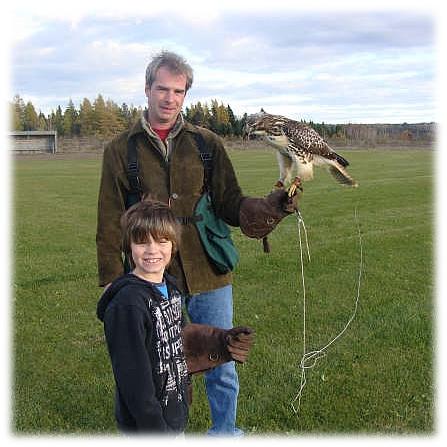 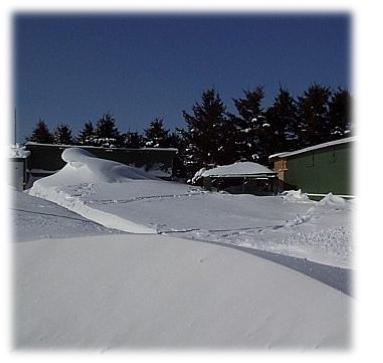  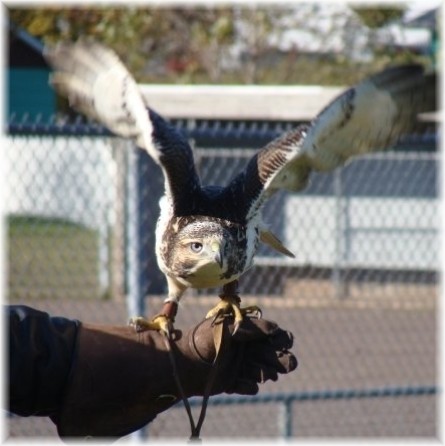 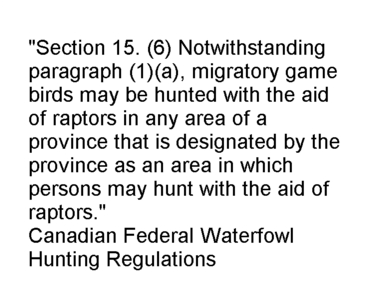  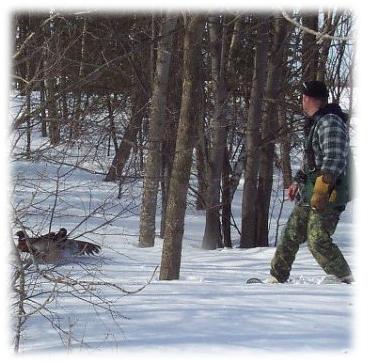 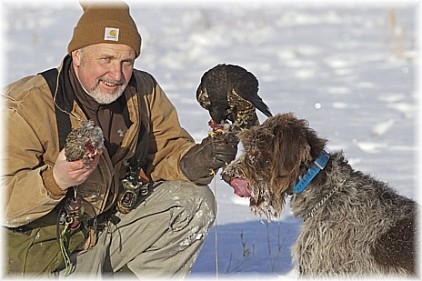 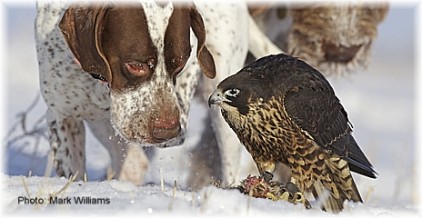 |
|
While adequate study and mentorship will provide the necessary knowledge and skill to be successful with falconry, the NLFA is currently developing a formal test for any members wishing to test their apprenticeship skills. In the meantime, many self tests can be found on the internet. Please feel free to try any you find via google egs: |
Books (economical used books can be had from on-line book stores such as Amazon.com, Barnes and Noble, etc) "Falconry and Hawking" by Phillip Glasier "North American Falconry and Hunting Hawks" by Beebe and Webster "The Complete Falconer" by Frank L. beebe "Falconry Equipment" by Brian Kimsey and Jim Hodge "Falconry Basics: A Handbook for Beginners" by Tony Hall "California Apprenticeship Manual and Study Guide" by CHC "Birds of Prey Health and Disease" by John Cooper "Understanding the Bird of Prey" by Nick Fox "The Bird of Prey Management" series of DVDs by Nick Fox is amazing and a benchmark "The Red-tailed Hawk" by Liam McGranaghan "American Kestrels in Modern Falconry" by Mathew MullenixAlaska State Falconry Manual No.7 If you have children, we highly recommend reading to them | Topic Articles and Websites Life History of Birds and Raptors Falconry Discussion Groups (beginners welcome) North American Falconers Exchange Falconry Magazines Falconry Organizations (international) |
Canadian Clubs and Associations
British Columbia Alberta Saskatchewan Manitoba Ontario Quebec Nova Scotia
PEI (currently there is full and proper falconry legislation in PEI but this was done in anticipation of one day a falconer moving there;)
This page and all contents are copyright, Newfoundland and Labrador Falconers Association, all rights reserved